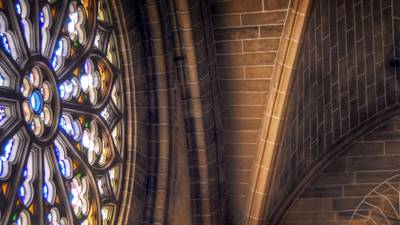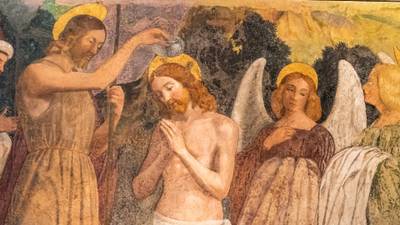Join our online Christian art degree and access outstanding expertise and digital archives.
Explore the fascinating relationship between art and faith in the Christian world, from medieval to modern times.
Study with an ancient university founded in 1495, and access our world-class University Collections, including the Aberdeen Bestiary, wherever you are in the world.
Together we’ll explore:
- the power of images in ritual, liturgy and popular culture
- the architecture of devotion
- visual culture’s impact on the history of Christianity, its debates and controversies.
You’ll examine a broad spectrum of objects, images, texts, and aesthetic discourses to deepen your knowledge of Christian art and its histories, beyond the western European context.
Flexible study options
- Study for the MLitt or exit early with a Postgraduate Certificate or Diploma.
- Set your own study hours with this flexible online degree that’s designed to fit around work and life commitments.
You can also study this degree on campus.
Who can join online MLitt Christianity and the Visual Arts?
This online degree is open to anyone with an undergraduate degree in a humanities subject, such as art history, theology, or religious studies.
We also welcome those working in the professional sectors who are seeking upskilling opportunities, such as the clergy and those employed in museums and galleries.
You can study this degree as preparation for further postgraduate research, for future employment or vocational training – or simply out of interest.

We are working in the spirit of true collaboration to explore the relation of Christian art and theology across time and space. Aberdeen has phenomenal resources in its high-profile academics, its inspiring students and its world-class collections.
Dr Karl Kinsella, Lecturer in Medieval Art History
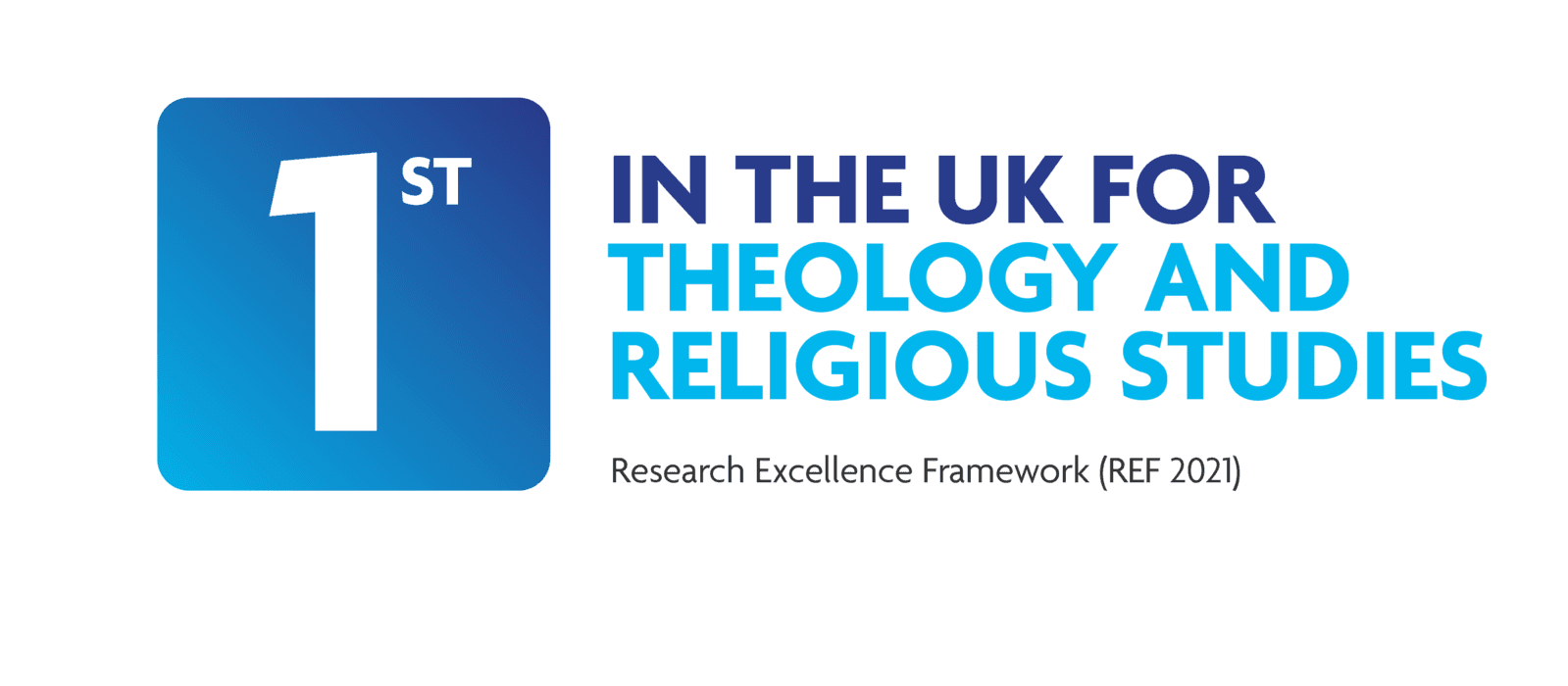
Outstanding Theology research
We’re rated 1st in the UK for the quality of our research in Theology in the latest Research Excellence Framework (REF 2021).
By the end of this degree, you’ll be able to...
-
Explore the intersections of art and Christianity from medieval to modern.
-
Describe and evaluate important discourses on theological aesthetics and its long history.
-
Reflect on historical and contemporary discourses on art and faith.
-
Use interdisciplinary methodologies to evaluate art historical and theological topics.
-
Contribute to debate via online discussion and coursework.
-
Share original research into Christianity and the arts that you’ve carried out as part of your dissertation.
Choose the University of Aberdeen for online Christian Art studies

2nd in Scotland for Theology
We’re rated 2nd in Scotland and 5th in the UK for Theology by the Complete University Guide 2026.

26th in the world for Theology
We’re rated 26th in the world for Theology, Divinity and Religious Studies (QS World University Rankings 2025).
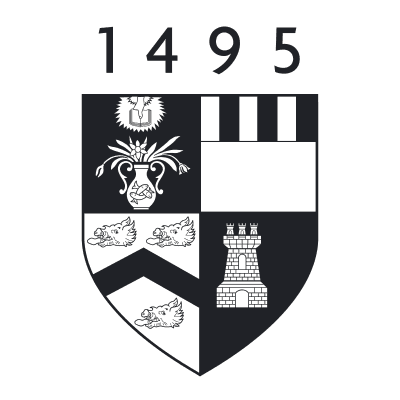
Over 525 years of excellence
Join a university founded in 1495, where Divinity has been taught for more than five centuries.
What you’ll study
You’ll study the following courses that make up the 180 credits of this Masters degree.
You can also choose to exit early, earning a:
- Postgraduate Diploma (120 credits), or
- Postgraduate Certificate (60 credits).
How you’ll study
Online learning
Our distance learning Masters in Christianity and the Visual Arts is delivered flexibly, 100% online.
You can learn with us anywhere in the world, no student visa required, and manage your study hours to suit you.
Your teaching
You’ll learn and interact within a virtual classroom, using digitised resources, archives, and discussion boards. Wherever you’re based, we aim to give you the unique experience of studying art and Christianity in a meaningful way.
Teaching is delivered through MyAberdeen, our online Virtual Learning Environment (VLE). It holds all the materials, tools and support you’ll need in your studies. Take a look around MyAberdeen.
You can access your learning materials on computer, smartphone and laptop, 24 hours a day. You’ll find a range of resources available, including:
- videos and video lectures
- tutorials
- podcasts
- slides shows
- quizzes
- reading materials
- discussion boards with your tutors and peers
- the online resources of our award-winning Sir Duncan Rice Library, and our remarkable University Collections.
Assessment
This degree is assessed entirely online via:
- essays
- book reviews
- discussion boards
- creative assessment, eg, posters.

The online format for the course has been well-thought out, and is not an adaptation of an in-person course. To be able to return and listen to lectures more than once has been invaluable, and the online access to the library and reading materials has generally been excellent.
Ann, online MLitt Christianity and the Visual Arts student, Retired
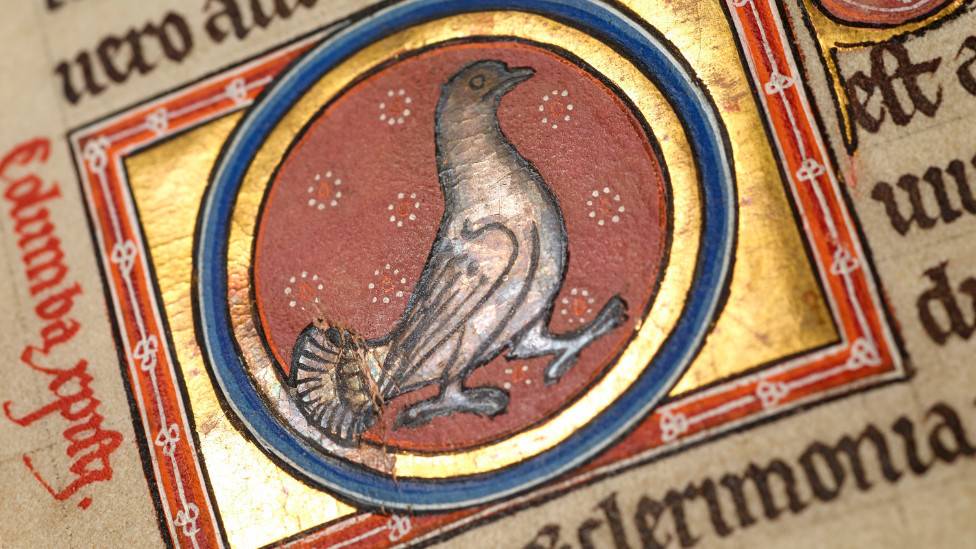
Amazing archive access
You’ll have access to our outstanding University Collections online.
They’re Scotland’s most significant university holdings. Within our collections, you can explore digitised illuminated manuscripts, including the Aberdeen Bestiary, oil paintings, early modern print collections, archives including the Scottish Catholic Archives, and much more.
Outstanding expertise
You’ll learn from leading experts in Art History and Divinity, based in our School of Divinity, History, Philosophy and Art History (DHPA).

Dr Joanne Anderson, Head of Art History
Joanne is Reader in Art History specialising in late medieval and Renaissance art, with particular expertise in the visual representations of Mary Magdalen.
She is author of Moving with the Magdalen: Late Medieval Art and Devotional Practice in the Alps and has featured on Britain’s Lost Masterpieces (BBC4) and In Our Time (BBC R4) on the topic of the saint.
Joanne’s broader research interests extend to the sacralising of the landscape and female patronage in the Late Middle Ages, and 20th-century exhibition history.
View Joanne’s profile
Dr Karl Kinsella, Lecturer in Medieval Art History
Karl is Lecturer in Art History, specialising in the history of architecture and manuscripts in the early and central Middle Ages. He’s regularly nominated for University of Aberdeen awards for his inspirational and supportive teaching.
Karl works on the development of architectural drawings within theological texts and exegesis. His book, God’s Own Language: Architectural Drawing in the Twelfth Century was published with MIT Press. He has also appeared on radio and lectured widely on the subject of medieval architecture.
View Karl’s profile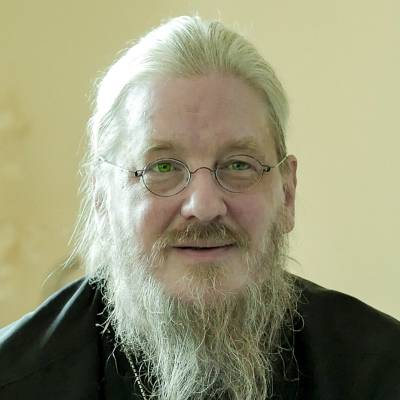
Reverend Professor John Behr
John is Regius Chair in Humanity at the University of Aberdeen and a world-leading patristics scholar and Orthodox theologian.
He joined the University of Aberdeen from St Vladimir’s Seminar, New York, where he served as Dean.
John has published widely on the early church and Orthodoxy, including The Way to Nicaea, The Nicene Faith, and John the Theologian and His Paschal Gospel: A Prologue to Theology.
View John’s profileHours for taught courses
To study part-time, we recommend you take a maximum of one 30-credit course per term.
30 credits
- Around 300 hours of study and assessment time to complete.
- You’ll study 15 – 20 hours per week per term, plus more at assessment times.
This is a guide to the time required for a typical student at this level to achieve the learning outcomes. This includes time for independent study, as well as teaching and assessments.
You can largely set your own study hours each week to cover the materials. MyAberdeen is available 24/7, so you can log in and study when it suits you.
Activities at fixed times
There may be some activities scheduled at fixed times, such as online meetings with your tutor or assessments with deadlines. But otherwise, you can access and work through each course at your convenience.
Hours for 60-credit dissertation
A 60-credit dissertation is around 600 hours of study time.
Work on your dissertation happens over both years of study with a preparation course in your first summer and the main period for research and writing in the second summer of your degree.
When you study with us, you can expect a first-class support structure so that you’re never alone in your studies.
But learning online does mean you have to motivate yourself and manage your own time.
Your most important commitment will be time – the time to work through, reflect on and understand your teaching materials.
Before you start a course that involves a high degree of independent study, we recommend looking at the time you will be able to devote to your studies each week:
- Be realistic
- Create a weekly schedule as a guide
If you have any questions about studying online, get in touch with our friendly team. We’re here to help.
Our first-class support structure will ensure that you aren’t alone in your studies. You’ll have contact with your coordinator via email, MyAberdeen and Microsoft Teams. You can use social media and discussion boards to chat with your fellow students too.
We provide a wide range of services to support you in your studies and beyond:
- Careers and Employability Service
- Disability support
- IT support
- Library support
- Student Support Service – help with finances, wellbeing, and non-academic issues
- Student Learning Service – study skills support and advice
- Aberdeen University Students’ Association (AUSA) – run by students for students
- Toolkit – clever apps and free training that can make your study life easier
Wherever you are in the world, you’ll feel part of our very special Aberdeen learning community.
We’re a member of the Access scheme run by the Society of College, National and University Libraries (SCONUL).
Access study spaces, books and journals in your area
The SCONUL Access scheme allows you, as a University of Aberdeen student, to access books and resources at university libraries across the UK and Ireland, or visit them for a quiet place to study.
You’ll be able to use study spaces, books and journals at over 150 university libraries which belong to the scheme.
Your support team
Our friendly team are here to answer any queries you have before, during and after your studies.

Joanne Anderson
Joanne is the degree coordinator. She’ll be on hand to answer any questions about degree content before you start and to help you throughout your studies.

Kate Smith
Kate is part of the School’s support team. She’ll be there throughout your studies to answer any of your non-academic queries.

Get in touch
The online education team is here to answer any questions you have right now about this qualification, or about studying online.
Ask us a questionI have never had such a supportive group of instructors. It was really incredible. I went back to do my MLitt 24 years after completing my undergrad and definitely lacked some confidence, but knowing everyone wants you to succeed helps. The approachability of everyone, even from a distance, was top notch.
Kristen, online MLitt Christianity and the Visual Arts student, Stay-at-Home-Mum
Where this will take you
Towards further research
Your MLitt will give you robust research training, preparing you to undertake further research in Art History and/or Theology.
You could go on to carry out PhD research on campus or with distance supervision.
Many of our students also go on to have distinguished academic careers.
Careers
Your MLitt in Christianity and the Visual Arts can help you upskill or work towards employment in the arts, culture, faith and heritage sectors.
It provides valuable transferable skills of:
- visual analysis
- critical and ethical thinking
- debate and presentation.
It can also be part of professional development in parallel with vocational training.

Lifelong career support
Our career support doesn’t stop when you graduate.
You have access to our free careers service while you study, and beyond.
- 1:1 appointments
- CV checks
- Interview prep
- Job opportunities
When I found the MLitt programme it felt like it was made for me. The University has a great reputation and the online programmes are set up so well, it was an easy decision to pick Aberdeen. I would 1,000% recommend Aberdeen to anyone and everyone.
Kristen, online MLitt Christianity and the Visual Arts student, Stay-at-Home-Mum
Fees and funding
Tuition fees typically increase each year. A 3% fee rise has been confirmed for academic years 2026/27, 2027/28 and 2028/29.
Our indicative costs include a 3% fee rise each year.
Pay as you go
This is a pay-as-you-go qualification.
You do not have to pay the full tuition fee upfront.
You can spread the cost and pay as you go, term by term.
How it works
- You decide how many credits to study for each term.
- At the start of term, you pay only for the credits you’re taking that term.
- This gives you control over your costs and workload for each term of your qualification.

Your personalised cost breakdown
Use the degree scheduler to plan your studies and see your cost breakdown, term by term.
Learning resources
Access to all the books and resources you need are included in your tuition fee. They’ll be made available to you online and you do not have to buy your own copies.
Printing
You may wish to set aside a small budget for printing, depending on how you like to work.
There are several ways you may be able to get help funding your studies:
- Employer sponsorship – we accept full and partial fee payments from sponsors
- Student loans
- Scholarships – search our funding database for scholarships
Find out more about funding options.
Student card
All our students are entitled to a University of Aberdeen student card. This gives you access to a range of student discounts around the city and online.
20% Alumni discount
You’re entitled to 20% off our postgraduate taught degrees and short courses if you have a degree from the University of Aberdeen. View Alumni discount details.
How discounts work
Discounts are applied during your application process. You can only use one discount per application.
Choose the University of Aberdeen for flexible online Masters degrees

Flexible
Flexible hours and 24/7 access, so you can study when it suits you.

You’re in expert hands
We’ve been delivering online and distance learning for decades.

20% alumni discount
University of Aberdeen alumni receive 20% off fees for this online degree.
Entry requirements
MLitt
- A 2:2 UK honours degree or equivalent.
We also welcome alternative qualifications combined with relevant professional experience. If you do not have a formal degree qualification, please submit a supporting personal statement with your application.
These are our minimum entry requirements. They are given as a guide and do not guarantee entry.
Entry requirements
We welcome students from all over the world.
See the minimum entry requirements above. If you do not have qualifications from the UK, check equivalent qualifications from your country.
Visa requirements
You do not need a student visa to study online with us.
English language requirements
Teaching is delivered in English.
If English is not your first language, use our English requirements checklist to see if you need to provide evidence of your English language skills when you apply.
English language tests and scores
If you do need to provide English language test scores, these are the tests and minimum scores we accept.
These are our Postgraduate Higher requirements.
IELTS Academic, IELTS UKVI Academic, or IELTS Online (not IELTS Indicator or IELTS General Training)
- 6.5 overall
- 5.5 for listening and speaking
- 6.0 for reading and writing
TOEFL iBT or TOEFL iBT Home Edition
- 90 overall
- 17 for listening
- 21 for reading
- 20 for speaking
- 21 for writing
- TOEFL DI code is 0818
Cambridge English: B2 First, C1 Advanced, or C2 Proficiency
- 176 overall
- 162 for listening and speaking
- 169 for reading and writing
LanguageCert Academic / LanguageCert Academic SELT
- 70 overall
- 60 for listening and speaking
- 65 for reading and writing
Oxford ELLT Digital – English Language Level Test Online
- 7.0 overall
- 5.0 for listening and speaking
- 6.0 for reading and writing
PTE Academic (online test not accepted)
- 62 overall
- 59 for listening, reading, speaking and writing
Skills for English: SELT
- B2 pass with merit
Duolingo – tests taken from 1 July 2024 onward
- 120 overall
- 95 for listening and speaking
- 105 for reading and writing
University of Aberdeen English Pre-sessional Programme (PSE)
- Pass
- Valid for one year. Refresher can be offered if out of date
Pre-sessional academic English preparation programmes undertaken at other UK universities
- Pass at an equivalent of 6.5 (C1)
- B2 in all four skills
- Certification must be within one year prior to the start of your course
For more information about language qualifications see our English Language Requirements page.
You apply through our online Applicant Portal. It allows you to upload relevant qualifications and documents.
There is no application fee for our online degrees.
What you need to apply for this degree
- Degree transcript
- Personal statement
- Degree certificate
Apply now
Start with our step-by-step guide. It explains degree transcripts, what to write in your personal statement and how to use our Applicant Portal.
Apply as early as you can. This is so we have time to review your application and get a decision to you. We also want to ensure you have time to enrol before teaching starts.
September 2026 intake
For our September 2026 intake, the application deadline is 6 September 2026.
You will need to accept your offer and provide any outstanding documents to meet the conditions of your offer by 13 September 2026.
Teaching starts on 21 September 2026.
You will need access to:
A computer (PC, laptop or Mac) with an up-to-date operating system
Most teaching materials are smartphone- and tablet-friendly. But we recommend a proper laptop or desktop for completing assignments comfortably.
Reliable internet access
We recommend:
- a wired connection
- a minimum download speed of 2 Mbps so you can take part fully in live sessions.
Speakers or headphones
- We recommend a headset with built-in microphone and earphones if you’re likely to study in an environment with background noise.
- A webcam is optional, but you may like to use one for some interactive sessions.
Software
We’ll give you access to Office365 applications. This means you can use online versions of Microsoft Word, Excel, PowerPoint and OneDrive and install these programs on up to five personal devices.
If your course requires specialist software, we’ll provide you with access to this and a licence that lasts throughout your studies.
See our detailed IT requirements for more information.
Try our degree scheduler

Choose your courses
See all the courses that are part of this degree and choose what you want to study.

Manage your study schedule
Control the pace and cost of your degree. Decide how much you want to study each term.

Save to your wishlist
Save your schedule to your wishlist so you can view and edit anytime.
Master of Letters
180 credits
£11,050
This indicative cost is based on 180 credits of study over two years, starting in September 2026.
Apply for this programme
- Start month
- September
- Indicative cost
- £11,050
This indicative cost is based on 180 credits of study over two years, starting in September 2026.
Apply via our Applicant Portal
